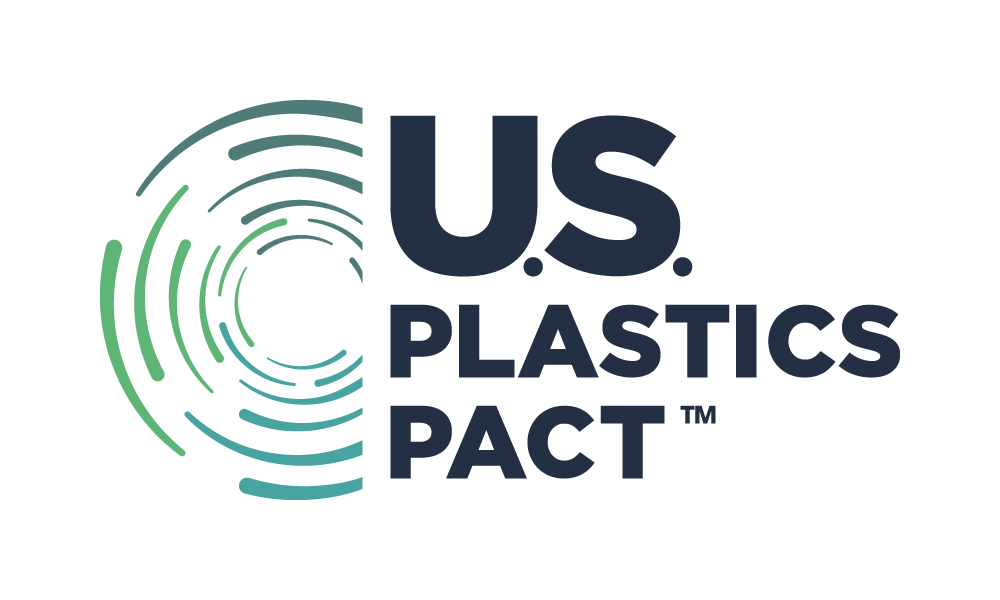Finding a PCR Supplier
Many brand owners will secure supply of PCR through their converters, who often have established relationships with recyclers. However, if you are a brand owner wanting to buy directly from a recycler, or you are a converter, you can find resources below to assist in finding a recycler. It’s important to know that recyclers typically only process one or a few types of PCR resins, so if your packaging portfolio is diverse, multiple recyclers may be needed.
While many brands have made public commitments to make their packaging recyclable, commitments to integrate PCR are lagging. Consistent demand for PCR will likely increase technological & infrastructure advancements and decrease market volatility.
PCR Directory
- The Association of Plastics Recyclers (APR) is an international trade association committed to the success of plastics recycling through networking, design guidance, and technical training.
- Canadian Plastics Recyclers‘ Circular Innovation Council developed the Plastic Action Centre, a knowledge hub that gathers information to educate, engage, and empower action on plastics.
- Circular.co connects a global network of collectors, recyclers, manufacturers, and brands on one digital platform.
- Plastics News covers the business of the global plastics industry. It focuses on commercial, financial, legislative, and market-related developments worldwide that affect North American plastic product manufacturers and their suppliers and customers.
- Stina Inc. focuses on critical research and tool development, designed to influence human behavior towards sustainable use of the world’s finite resources.
U.S. Pact Activator Recyclers / Reclaimers
- Eastman is a global advanced materials and specialty additives company dedicated to building a circular economy that creates value from material waste. Their molecular recycling technologies break down waste into its molecular building blocks and rebuild it into new materials for durable products, packaging and other consumer goods—without compromising performance.
- PADNOS is a fourth-generation, family-owned and operated company that has been transforming scrap into reusable resources for over 100 years. PADNOS’ Plastics Division sorts, grinds, washes, densifies, and compounds a multitude of plastics for both the post-industrial and postconsumer sectors. Within the Sustainability & R&D/Innovations Teams, PADNOS work closely with the entire value chain to find the best solutions for simple to complex resins.
- PreZero US is a B2B recycling services company, providing plastics recycling (LDPE, LLDPE, HDPE, & PE resins), organics recycling, and reverse logistics solutions.
- PureCycle Technologies is a leading innovator in polypropylene recycling with a solvent-based purification recycling technology for restoring waste polypropylene into virgin-like resin.
- Revolution – Through a circular approach to film plastics, Revolution recovers, cleans, and processes postconsumer and post-industrial LDPE, LLDPE, and HDPE plastic film into certified PCR and PIR resins. Revolution also has an FDA Letter of No Objection (LNO) for film PCR and are a manufacturer for several film end markets.
- rPlanet Earth is an industry leader in recycling postconsumer PET material and operates the first-of-its-kind vertically integrated facility that truly closes the loop from recycling to packaging.
PCR Pricing Models
Understanding cost drivers and pricing mechanisms are key components of any sourcing strategy. Pricing for contracted PCR could be tied to published indices, virgin, or recycled resin. These pricing mechanisms could provide less volatility in the pricing as well as increased transparency into the cost drivers. Alternately, some buyers prefer to negotiate on the spot market, which is subject to more pricing volatility.
Significant price volatility can be challenging for suppliers and buyers in any market, but it is particularly challenging in a market that still needs additional investment in infrastructure and capacity to achieve a social good – a circular economy. To secure supply, stabilize prices, and incentivize investment, buyers may consider contracting methods that have successfully been used in other industries such as:
- Long-term contracts with a price minimum and a price ceiling (these parameters can ensure sellers can cover their costs and buyers are protected from extreme market increases).
- Long-term contracts with a cost plus model. In this scenario, the seller is transparent on the cost of their raw materials, yield losses, and conversion costs. The seller and buyer agree upon a fixed profit margin and develop a pricing formula in the contract. Pricing is adjusted on an agreed upon cadence based on actual costs incurred by the seller.
- Infrastructure investment funds with offtake agreements can support investment in increased market capacity and offer a first right of refusal on volumes produced by that new capacity.
In addition to determining the pricing mechanism of PCR, it is beneficial for buyers to understand additional cost drivers to help eliminate unnecessary costs and plan adequately. A wider range of sellers’ desirable attributes on a specification or contracting method may create opportunities to source material at a lower price. These factors are described below.
PCR Pricing ModelsFactors Impacting PCR Pricing
Click on the variable in the drop-down menu to see how and why it impacts the price of PCR.
Contract Considerations
This portion of the toolkit gives an overview of what sections you may want to consider including in a PCR contract. This is not legal advice, and it is recommended to consult legal counsel when negotiating and/or signing any contracts.
Long-term contracts for PCR foster a reliable and robust market for recycled plastics and can result in discounted prices.
PCR contracts may include the following sections:
- Audit: Buyer may/may not perform audit, frequency of audits, days of notice prior to audit
- Certification: Name certifying body, certification standard, frequency of certification renewal
- Forecasting: Length of rolling forecast
- Inventory: Who carries inventory, how much, how long
- Locations: Manufacturing locations and destinations
- Ordering: Leadtime, delivery times, etc.
- Materials: Define material and specific grade(s)
- Packaging: PCR will be shipped in boxes/supersacks, with or without pallets, including dimensions and quantities
- Payment Terms: Decide length of payment terms, early pay discounts, etc.
- Pricing: Pricing mechanism, frequency of pricing adjustments
- Term: units of time or description of the duration of the customer-supplier relationship, which may include renewal(s) or evergreen provisions
- Quality: Define function and aesthetic requirements, testing requirements
- Quantity/Volume: Ordering quantities, supplier agrees to produce X, buyer agrees to buy Y – may include shortfall penalties
Purchasing PCR Direct From Supplier or Through Converter
A brand can integrate recycled content into their package by purchasing the PCR directly from the recycler or by having the converter purchase it. Below are the key considerations to help determine which option is preferable.
Converter Purchases PCR
- Traditional approach that most converters prefer
- Converter may purchase larger volume for multiple customers and be able to secure better pricing
- Converters process the PCR and thus are able to set quality expectations and address quality concerns as they arise
- Converters can select PCRs that are most compatible with their processing equipment
- Handling numerous grades of PCR is not desirable for a converter, they prefer to use one across several customers
- Brand has less transparency into PCR price
- Brand cannot track volume usage directly (via purchase orders)
Brand Purchases Direct from Recycler
- Can negotiate pricing based on PCR usage company-wide and across multiple converters
- Transparency in pricing
- Easy to track volume / usage
- Creates a direct relationship with PCR supplier
- Additional work for brand owner
- Converters are accustomed to buying materials and may not agree to this arrangement
- Brand may not understand the material handling, equipment requirements, quality standards, or processing procedures when purchasing on behalf on the converter

PCR Toolkit Homepage
- PCR Toolkit Introduction
- U.S. Pact Background
- PCR Defined
- U.S. Pact Testimonials

Integrating PCR
- Quality Considerations
- FDA requirements
- Converter preparation
- On-pack labeling
- Certification Position Statement

Why Use PCR?
- Environmental Benefits
- Benefits Calculator
- APR Graphics
- Consumer Perception
- U.S. Pact Requirement
- Legislation Requirements

Join the U.S. Pact
PCR use is critical to achieving a circular economy in the plastics industry. Please contact us about joining the U.S. Pact if your organization is committed to keeping plastic in the economy and out of the environment.
LEARN MOREDisclaimer
The U.S. Plastic Pact created this toolkit to assist U.S. Pact Activators in voluntarily purchasing postconsumer resin for their products and packaging. This toolkit does not contain any endorsements, recommendations, legal or financial advice, and should not be construed as such. The U.S. Pact and contributing authors are not liable for any business decisions that result from consulting this toolkit.
